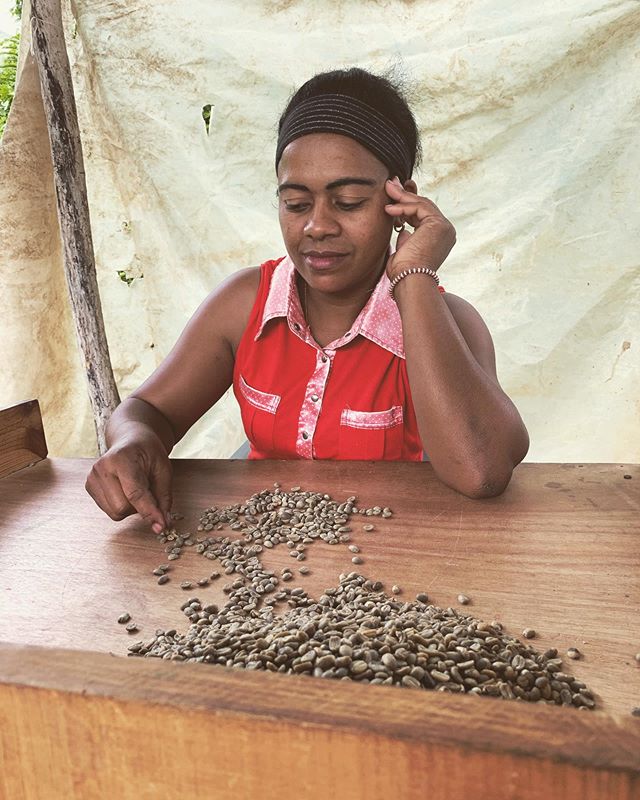
Download Image: Web
By Brittney Gross, International Development Fellow 2018-2019
Before returning to the United States, my last task in Peralta was to train the San Rafael Coop and El Naranjito Association on hand sorting coffee. This is an extremely important role in coffee processing, as it is the last chance for producers to ensure coffee is leaving the country with the best quality possible — meaning there are no defects such as machine or insect damage. While a great amount of attention is paid to quality during harvest, wet processing, and dry milling, hand sorting poses a number of challenges in part because hand sorting is usually not utilized in this region, and certainly not at the level the specialty market demands. A further complication is the fact that coffee is not being sorted by the farmer who grew the coffee, but rather neighbors of the coop or family of the association members.
My role in this process was to train leaders in both organizations so that they were able to, in turn, train the hand sorters on their own; a Lycoming representative cannot, nor should not, always be there to train new sorters, so this was a rather important step towards independence and sustainability — meaning producers and organizations can promote their own interests in the international coffee market. While my goal was to work with just organizational leadership, it turned out many hand sorters jumped into the training, which was wonderful! We then had more people to help explain these new concepts to those who had no experience with sorting. We began by discussing what exactly the specialty market looks like on both sides (production and consumption), and what standards specialty coffee production should follow. We then transitioned to which beans are considered defects, what causes those defects, how to avoid them at the production level, and how each defect affects the taste of the coffee. With this understanding, hand sorters then knew why their role was so important. Without their hard work, the quality of the coffee will not reach its full potential and therefore will not only be worth a lower price, but will also misrepresent all of the hard work that producers put into their product. One of the final exercises was grading the coffee following the exact process Lycoming College and other coffee buyers use to determine its quality and price. While a hand sorter may never have to grade coffee, the exercise helped them to look at coffee the way a buyer might and, again, understand how their work impacts the final product.
After the trainings were finished, hand sorting went into full swing. I spent every day for a week living the life of a hand sorter. Doors open at 9 a.m., lunch with the co-op warehouse neighbors at 12 p.m., leave at 5 p.m.. We sat under a tin awning next to the coffee drying patio, and worked on a table with 6 partitions made specifically for hand sorting. The days were long and our bodies were definitely sore at the end of the day, but we bonded over conversations over everything from human rights to community gossip. I met many hard workers and observed leadership start to form among them.
I am excited to get this coffee into the United States and share these beans, carefully processed and diligently sorted by so many hard working men and women, with the supporters of Warrior Coffee. Quality hand sorting means that we are one step closer to helping the producers of the El Naranjito and Peralta regions consistently produce a product that the specialty coffee market will buy, and will buy at a price that will help these producers better provide for themselves and their families.